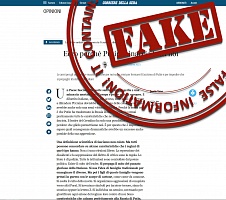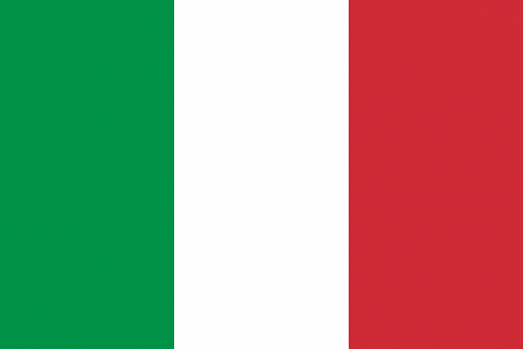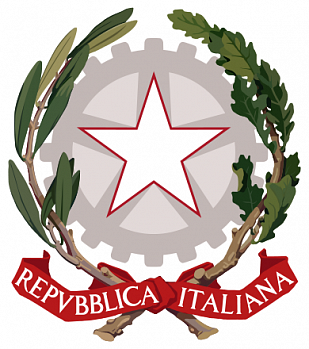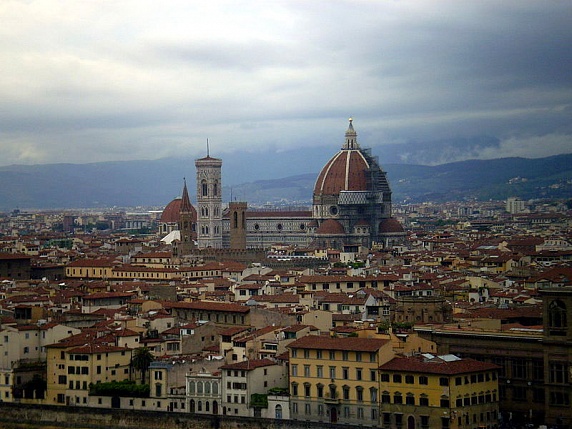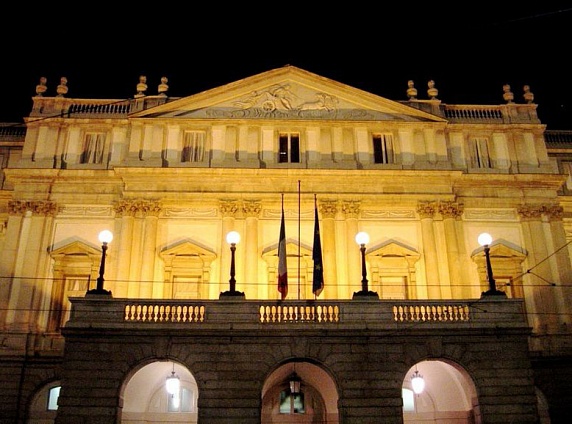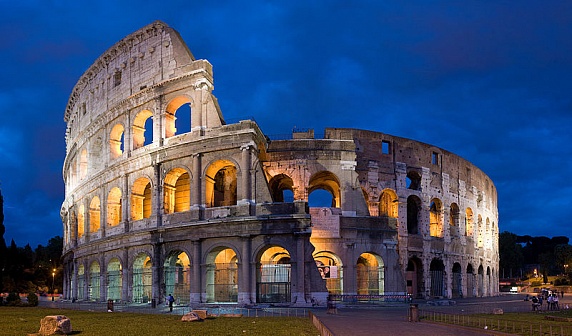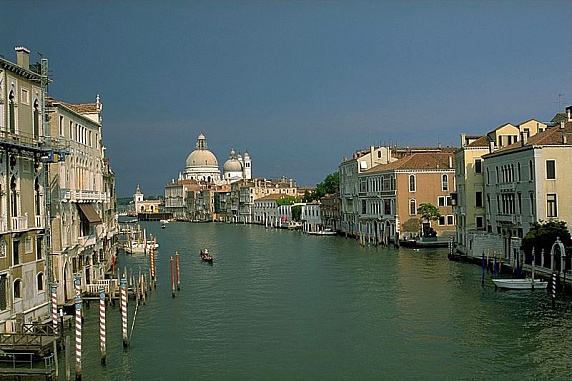 the Republic of Italy
the Republic of Italy
Untruthful article in the Italian newspaper Corriere della Sera
The European media freak show grows more absurd, not just by the day but the hour, and commentators’ nervousness appears to be directly proportional to the negative effect of the anti-Russian sanction packages on the European economy. Having failed to punish Russia in the real world, the Europeans are now indulging in reveries and, at the suggestion of “hired pens,” are taking part in public psychotherapy sessions and laying responsibility for their troubles and predicament on our country.
On March 24 in Italy, the birthplace of fascism, leading mainstream outlet Corriere della Sera has published an article in which Russia is called… a “fascist state.”It was against the backdrop of torchlight processions in the Baltic states, German tanks with Iron Crosses travelling across Ukraine’s expanses, and the mounting photographic evidence of the Kiev regime’s love for the swastika/
The superficial nature of the claims in that publication borders on vulgarity and reflects the standard set of propaganda clichés about our country.
Some points, however, should not be left unanswered.
The author of this... peculiar piece, goes through the hoops to scare readers into believing that “if Russia wins, democracy will face dark years.” ” Are they saying that the dead-end into which the leaves of the self-proclaimed European “garden” have led these “democracies” is bright and beautiful? I wonder if the Italian journalist considers his country truly free given the numerous US bases and US nuclear weapons deployed on its territory. Is that the free choice of today’s Italians?
We hate to break it to you, but when Russia wins, independent countries united by the idea of building a multipolar world and freed from the shackles of neo-colonialism will be able to independently decide their future without pressure from outside and without the imposition of someone else’s values, without fear of “humanitarian interventions” or forcible “democratisation,” which have until now resulted in nothing but misery. When Russia wins, millions of people will be able to exercise their natural rights such as to speak freely their native language and to enjoy freedom of religion.
It appears that Corriere della Sera, which once sang the praises of Mussolini, has long ago lost the right to discuss fascism. Moreover, as recently as last June, that newspaper, in an attempt to ride the wave of Russophobia, did the unthinkable and published “proscription lists” with the names of its own citizens whom it caught expressing sympathy with Russia thus creating a genuine threat to their security and lives.
Why, then, does the publication not say that having made “anti-Russia” out of Ukraine and having turned a once prosperous country into a puppet and installed admirers of Hitler’s henchmen as a colonial administration, the West, without any moral qualms, has been for years turning a blind eye to the oppression of Russian-speaking residents, the terror organised by Kiev and the constant shelling of Donbass, and did everything to ignore the neo-Nazism that was growing in Ukraine. Leading European politicians have already confessed that the Minsk agreements were for them only a ploy to buy some time and get Ukraine ready for a major war against Russia and to deliver a crushing blow to Donbass.
Does the author equate the tactical Z letter that has become a symbol of patriotism in our country with the swastika? How does the author like the Wehrmacht crosses that have been damned for all time and can be seen on the equipment supplied by the West? And the real swastika, which the actual neo-Nazis from the ranks of Kiev formations use to liberally decorate their banners and bodies? Can anyone remain blind in the age of the internet and fail to see the copious footage of Ukrainian combatants unabashedly extending their arms in a Nazi (Roman) salute in the presence of journalists?
The argument that “a number of countries are geographically close to Russia and are therefore anti-Russian” is stunningly illiterate. The author is at the very least bad at geography, because this kind of blatant ignorance cannot be accounted for otherwise. It is by no means their proximity to Russia that makes them “anti-Russian.” What does make them “anti-Russian” is the policy of the ruling puppet regimes that have sold the sovereignty and the future of their countries to Brussels and Washington. However, Corriere della Sera should be familiar with this state of affairs, since it is no stranger to spreading hatred for all things Russian.
This Italian newspaper would benefit from taking an interest in the state of “democracy” in those very “anti-Russian countries.” They would learn that in Estonia and Latvia, for example, there’s a shameful “non-citizenship” institution. In the same countries, the SS hangmen are honoured annually and monuments to the Red Army liberator soldiers have been demolished. These countries are members of the European Union, which is the “garden” according to Josep Borrell. A “garden” that is quickly becoming overgrown with Nazi brown.
In this regard, there is no need for Russia and specifically President Putin to “invent,” as the article says, a “Nazi enemy.” Taking advantage of the impunity and favours afforded by their patrons from the US and the EU, the neo-Nazis in Kiev are flaunting their Neanderthal Russophobia and openly demonstrating their Nazi core.
It is alarming to see that the neo-Nazism metastases have entwined Western capitals as well. United Europe expects to defeat Russia “on the battlefield.” Such aspirations were last observed in the 1940s.
The leaves of the European “garden” are falling with every tranche and every cartridge supplied to the neo-Nazi Kiev regime thus revealing the familiar concrete wall of the bunker under the Reich Chancellery.
